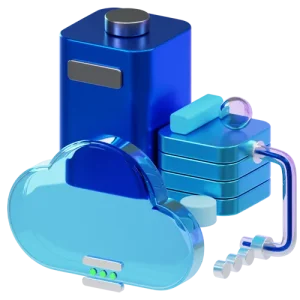
Protect all your data from ever-evolving cyber threats and access everything everywhere with absolute ease. We are the leading cloud hosting provider in Pakistan offering secure and scalable solutions for businesses.
If you are looking for the best digital marketing agency in Pakistan, then hire our veteran marketers to become the talk of the town. We specialize in SEO services, PPC advertising, and social media marketing to help businesses grow.


We have a team of experienced web developers in Pakistan who create stunning websites for businesses. Our custom web development services ensure your website is fast, responsive, and optimized for search engines.

Protect all your data from ever-evolving cyber threats and access everything everywhere with absolute ease.

We have a team of experienced front-end and back-end developers to make a fantastic digital home for you that attracts traffic in millions.

If you are looking for the best marketing agency to help you cut through the noise in 2025, then hire our veteran marketers to become the talk of the town.

Protect all your data from ever-evolving cyber threats and access everything everywhere with absolute ease.
We have a team of experienced front-end and back-end developers to make a fantastic digital home for you that attracts traffic in millions.


If you are looking for the best marketing agency to help you cut through the noise in 2025, then hire our veteran marketers to become the talk of the town.

Be it Meta ads services or our cloud expertise, we do it all for our clients to deliver end-to-end solutions that deliver unmatched results.

Unlike other digital agencies, we offer reasonable prices to help our clients gain thought leader positions without exceeding their limited budget.

Since the inception, we have helped hundreds of businesses become a well-recognized name in the industry with our in-demand services.
By choosing us, you get to stamp your online success and outshine your rivals as we house an experienced team who are ready to help you get ahead and become a leading name.
It’s 2025 and we all know that there will be whole new tech trends that will disrupt the digital world. It’s important for businesses to leverage them as the first-mover advantage remains priceless. If you want to partner with a company that knows all about the upcoming trends and leverage accordingly, then we are the best bet for you. Whether it’s relating to digital marketing or website development, we can do it all and we have a proven portfolio that showcases our achievements. So, leave all your worries behind and reach out to us right away to make this year all yours.

A website’s performance relies on the quality of its hosting. If you are not familiar with the importance of good hosting, then worry not. It’s the thing that makes your website accessible, secure and fast. Downtime is a red flag and Gartner revealed in a study that a business can lose around $5,600 per minute due to downtime. Thus, having a stable hosting solution is a must. Not just that, website speed is equally important. It might surprise you that you can minimize your conversions by 7% due to a delay of a single second.
Million Web Service is a well-recognized IT services company in Pakistan, widely preferred for shared hosting, VPS hosting, and dedicated servers by businesses across the country.

Remember the time when cloud technology was making the headlines? It has changed almost everything, including how businesses in Pakistan operate. Our cloud solutions offer accessibility to data from any part of the world, helping businesses across the country grow. Companies can now expand their business without the need for heavy investments. IDC believes that global spending on cloud computing will reach $1.3 trillion by 2025 which is really immense. 94% of companies are leveraging cloud services which also shows its widespread acceptance.
In 2025, it’s important to make the most out of this technology to leave your rivals in the dust and gain that competitive edge. At Million Web Services, we have offered our cloud solutions to countless businesses and become one of the pioneering digital agencies. Here are the cloud services we provide:

Since it’s the start of 2025, a lot of stats are disclosed by organizations revealing the importance of digital marketing. Around 68% of online experiences start with a search engine which tells us that SEO is important to improve visibility and drive organic traffic. 54% of social media users rely on platforms like Facebook and Instagram to learn about products. There are a lot more that will help you understand what you are missing out is actually gold.
At Million Web Service, we offer full-fledged digital marketing solutions to help you 5x your ROI. Here are the services we have been providing for years and have become the best marketing agency:

Everything demands creativity now. Whether you are cooking, decorating for Christmas or just making a social media post for your business. The same goes for graphic designing as it’s driven by creativity. You can’t just download a few templates from Freepik, tweak it a bit and expect it to go viral among your target audience.
You have to break free from the conventional and go out of that box to become a thought leader. An aesthetic logo and branding can help you shape your brand according to your requirements and build credibility. It will surprise you that proper branding can boost revenue by 33%.
We at Million Web Service offer a range of graphic designing services to clients from various industries. Here are the services we provide:

Your website is like a home where you have to welcome guests (customers). Since the first impression is everything, you have to make sure that your website has everything a customer demands like speed, free from bugs, relevant content, responsive and mobile-friendly. Take yourself as an example. You visit a website to purchase a jacket but it just keeps loading, then you are unable to check out properly. You will obviously leave and shop from some other place.
Also, we are living in a mobile-first world. With over 60% of global web traffic coming from mobile devices, adopting a mobile-first approach is crucial. We at Million Web Service offer the following web development services:

You are here because you want your business to stand out from the rest of the world. We get the feeling. You have invested a lot and you just want to sit back and relax while the revenue keeps rolling in.
All you need is to partner with us. We are the leading IT services company with a proven portfolio spanning around a decade. With us by your side, your success is guaranteed. We are ready to leverage all that we have to make sure you are satisfied with our services and rise beyond the usual. So what are you waiting for? Reach out to our customer care team to establish your supremacy and become a thought leader in your domain.


It’s 2025 and we all know that there will be whole new tech trends that will disrupt the digital world. It’s important for businesses to leverage them as the first-mover advantage remains priceless. If you want to partner with a company that knows all about the upcoming trends and leverage accordingly, then we are the best bet for you. Whether it’s relating to digital marketing or website development, we can do it all and we have a proven portfolio that showcases our achievements. So, leave all your worries behind and reach out to us right away to make this year all yours.
At Million Web Service, we offer full-fledged digital marketing solutions to help you 5x your ROI. Here are the services we have been providing for years and have become the best marketing agency:
Million Web Service is a well-recognized digital marketing company widely preferred for shared hosting, VPS hosting, dedicated servers, and cloud hosting. Here’s why we are the top choice for thousands across the world:

Remember the time when cloud technology was making the headlines? It has changed almost everything like the way businesses operate by offering accessibility to data from any part of the world.
In 2025, it’s important to make the most out of this technology to leave your rivals in the dust and gain that competitive edge. At Million Web Services, we have offered our cloud solutions to countless businesses and become one of the pioneering digital agencies. Here are the cloud services we provide:
Around 68% of online experiences start with a search engine which tells us that SEO is important to improve visibility and drive organic traffic. 54% of social media users rely on platforms like Facebook and Instagram to learn about products.
At Million Web Service, we offer full-fledged digital marketing solutions to help you 5x your ROI. Here are the services we have been providing for years and have become the best marketing agency:

Everything demands creativity now. Whether you are cooking, decorating for Christmas or just making a social media post for your business. The same goes for graphic designing as it’s driven by creativity. You can’t just download a few templates from Freepik, tweak it a bit and expect it to go viral among your target audience.
We at Million Web Service offer a range of graphic designing services to clients from various industries. Here are the services we provide:

You are here because you want your business to stand out from the rest of the world. We get the feeling. You have invested a lot and you just want to sit back and relax while the revenue keeps rolling in.
All you need is to partner with us. We are the leading IT services company with a proven portfolio spanning around a decade.
With us by your side, your success is guaranteed. We are ready to leverage all that we have to make sure you are satisfied with our services and rise beyond the usual. So what are you waiting for? Reach out to our customer care team to establish your supremacy and become a thought leader in your domain.




Contact our maestros and take your business to the zenith with our in-demand tech solutions.
We are a leading digital marketing company and for our services, we have received numerous awards that showcase our commitment to delivering the best services.






Here are answers to some of the most common questions we are often asked by our customers before they experience our exceptionally-well services.
We offer a full-fledged range of digital solutions like web development, cloud services, hosting solutions, digital marketing, graphic design, and custom software development.
Sturdy web hosting makes sure your website is accessible, secure, and fast. It minimizes downtime, improves load speeds and protects against online attacks.
Yes, we offer continuous website maintenance and support services, including updates, security patches, and performance optimizations to make sure your online presence thrives.
It involves promoting online stores to drive sales through SEO, paid ads, email marketing, and social media strategies. It helps attract potential customers, increase conversions, and build brand loyalty.
Online marketing increases your online visibility, brings traffic, and boosts conversions through strategies like SEO, PPC, social media marketing, and email campaigns.
Simply reach out to us via our contact form, email, or phone. Our customer care team will have a word with you to understand your needs and recommend the best solutions to help you ace your business.

Copyright © 2025 Million Web Services. All Rights Reserved.